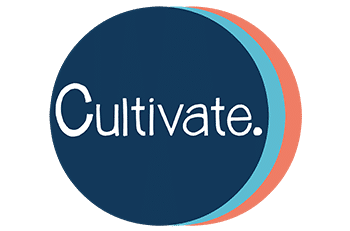The upcoming college admissions cycle is and will inevitably be plagued with consequences from the ongoing COVID-19 crisis. In an attempt to address some of the shifts that rising seniors will see this season, eight Ivy League admissions deans and 200 college admissions leaders recently released a statement of their input about what their colleges and institutions like them will value in Class of 2025 applicants. Organized by Harvard’s Graduate School of Education Making Caring Common (MCC), the statement highlights fields that students should focus on as they build their applications: self-care, academic work, service, family contributions, and extracurriculars. Essentially, high school seniors should rest assured that college admissions officers will not penalize them for grading changes or lack of access to campus visits. While this MCC report has good intentions, it does not address some pressing concerns. For more information, visit https://www.forbes.com/sites/avivalegatt/2020/06/29/ivy-league-deans-tell-students-how-to-compete-for-admission-during-covid-19-while-students-most-pressing-concerns-go-unaddressed/#4f6a35f3a56a
Weight of Standardized Tests
While many colleges have become test-optional or test-blind for the 2021 admissions cycle, students are still concerned about the weight of test scores on their applications. The statement affirms that “no student will be disadvantaged because of… their lack of access to standardized tests”, but does not give any insight if a student with a test score would be favored over a student without any scores (Forbes). This aspect may be an influencing factor as students decide whether to take standardized exams this Fall.
Cultivate Academics’ founder and lead admissions consultant Rebecca Sherer suggests that students with current test scores or who have the opportunity to take standardized tests still do so. While students without a test score will not be at a disadvantage, an application with a score is considered more complete as it is a “check” on the transcript and/or an added indicator of student achievement. The basic rule of thumb for our students is to identify a college or university’s average or middle 50% test score (of admitted freshmen from the previous year’s cycle) and if the student’s score falls inside that range, you can feel safe to send in your score. Admissions officers will thank you for it!
Scholarship/Financial Aid
Scholarship and financial aid availability can be a defining factor for students when choosing which university to apply to. The MCC statement does not give any clarification on how COVID-19 would impact scholarships and how parents could find support for financial aid.
With so many college and university merit scholarships tied to a compilation of GPA and test score (see Miami University’s scholarship chart), there is no clear answer about how scholarships for incoming freshmen– tied to academic– merit will be awarded this cycle. This is yet another reason that Cultivate Academics is urging as many students who can to take and submit test scores. Unfortunately, test optional may turn out to mean funding optional.
Competition
Unsurprisingly, the high school Class of 2020 is making some difficult choices about their futures. Some students are deciding to choose a college close to home or even deferring their enrollment decision in favor of a gap year experience. In addition, international students may be unable to enroll due to travel and visa restrictions. The question remains of how much more competitive admission will be for the high school Class of 2021 as they compete with a higher number of gap-year students coming back to campus in Fall of 2021. While the MCC report does not address this uncertainty, the overall advice from college admissions officers is that students select early the targeted colleges where they wish to apply, meaning early action or early decision (preferred) options.
Cultivate suggests that, as always, students have a balanced list of colleges and universities to which they will apply. Private schools will often offer Early Decision options that can secure a student’s spot on campus but they also boast lower acceptance rates, whereas larger state universities often have a higher rate of acceptance but no ED option. Balance your list of Open Minded schools (unlikely admittance), Intentional Schools (likely admitted), and Confident Schools (highly likely admittance). You will want to have multiple options to choose from if uncertain times arise once again.
Extracurricular Opportunities
The MCC report specifies that “students will not be disadvantaged for lost possibilities for summer involvement, including lost internship opportunities, jobs, and classes” (Forbes). Students can use the appropriate sections of the Common Application or Coalition Application to explain their own experiences during this challenging time.
Cultivate Academics reminds students that this does not mean that students should not pursue their interests. Be mindful of how you can express who you are, explore your curiosities, and get involved in your community in creative ways that are suitable for you given the inevitable restrictions of COVID. We suggest that students get creative, think about themselves authentically, and do what they can within the boundaries given.
How Can Cultivate Academics Help You?
At Cultivate Academics, we recognize that this upcoming application process requires an adaptability to address many different facets at once, which allows us to meet our students and help them develop organic solutions aligning with their underlying purpose and goals. By focusing on our Cultiv8 mindsets, including open-mindedness, intentionality, engagement, and balance, our students can work toward the five areas that college admissions deans state are important, such as service, extracurricular activities, and academic work. Our individual coaching paired with a learning experience design allows our students to benefit from coaching sessions to gain deeper clarity about dreams and making commitments towards change. To learn more about how Cultivate Academics can help you, visit https://www.cultivateacademics.com/.

